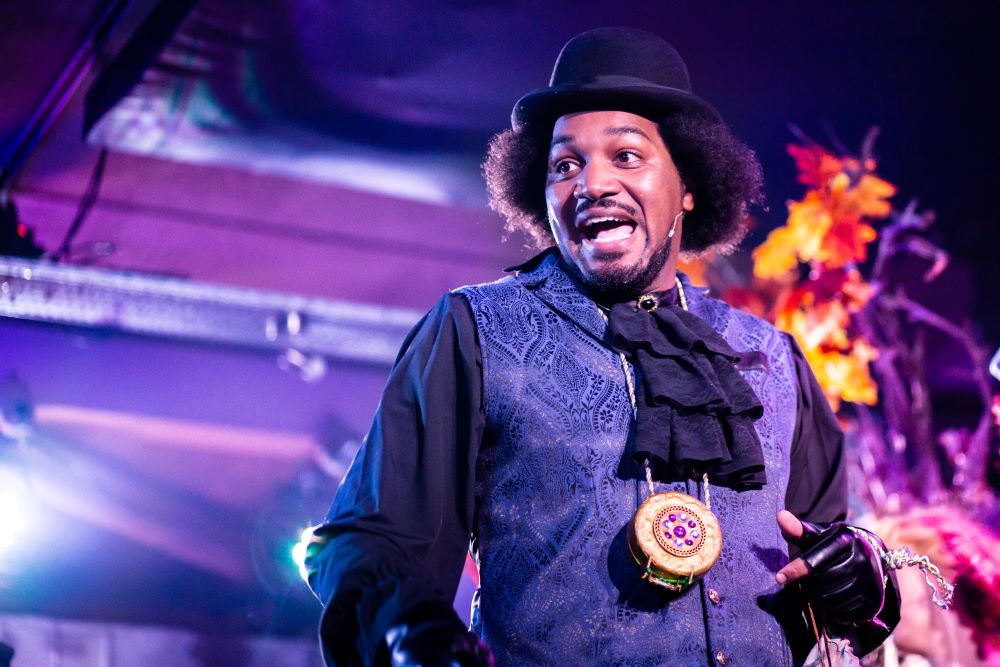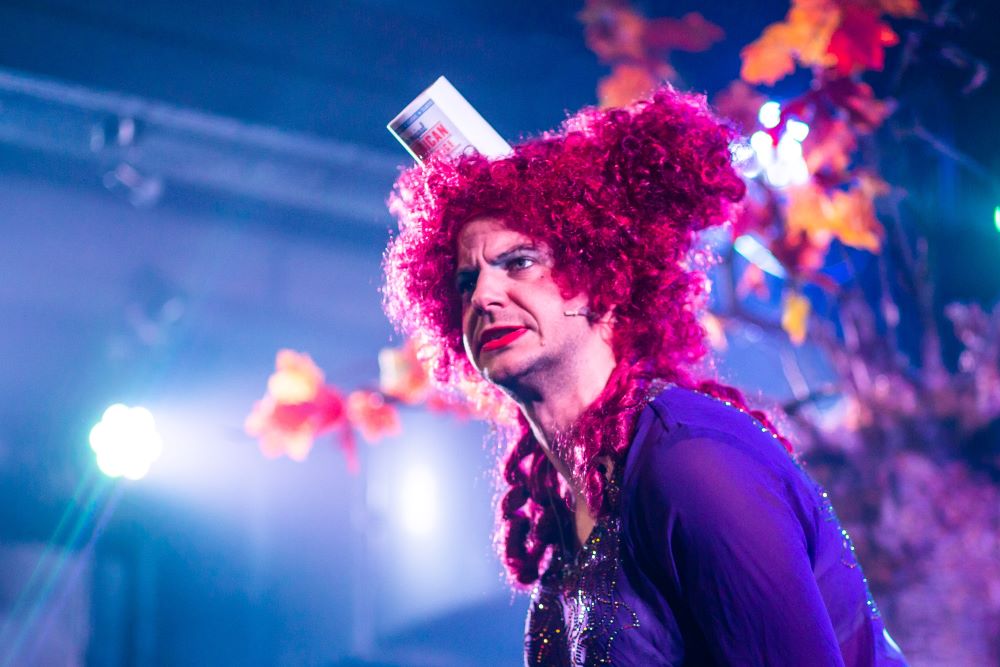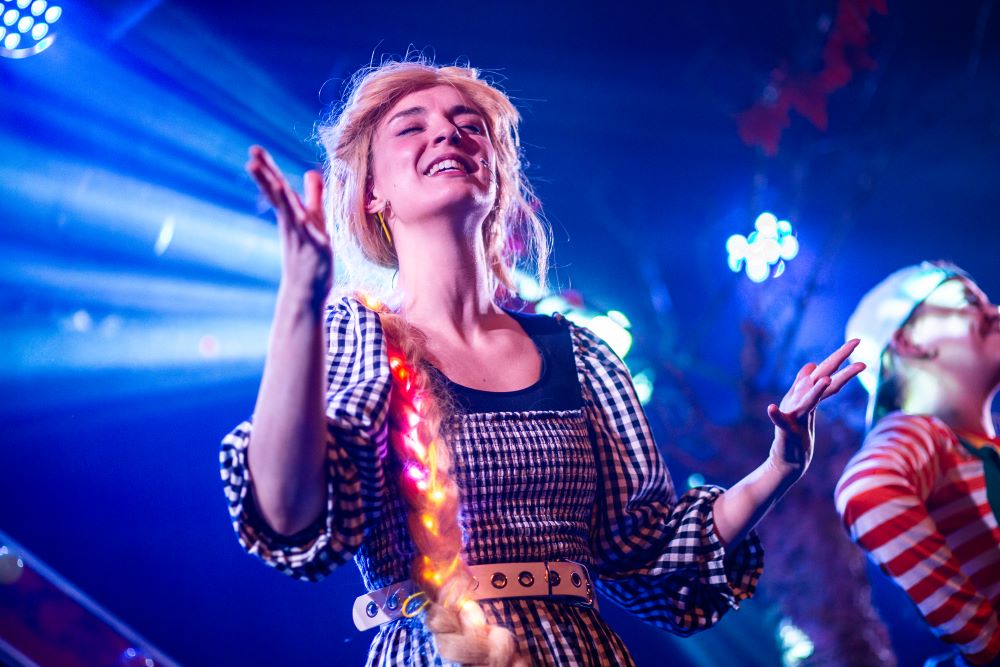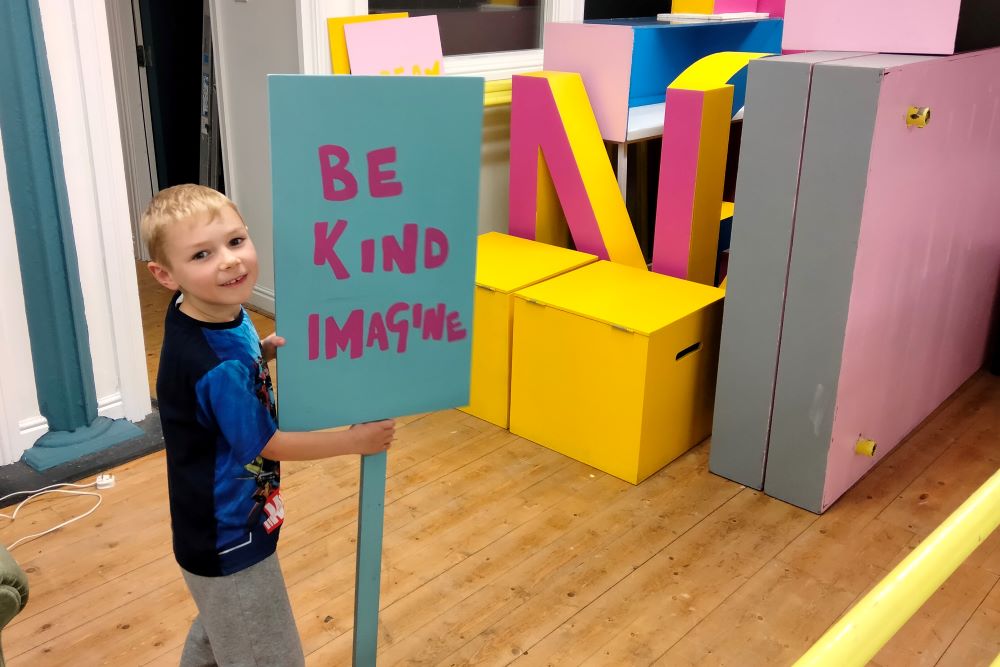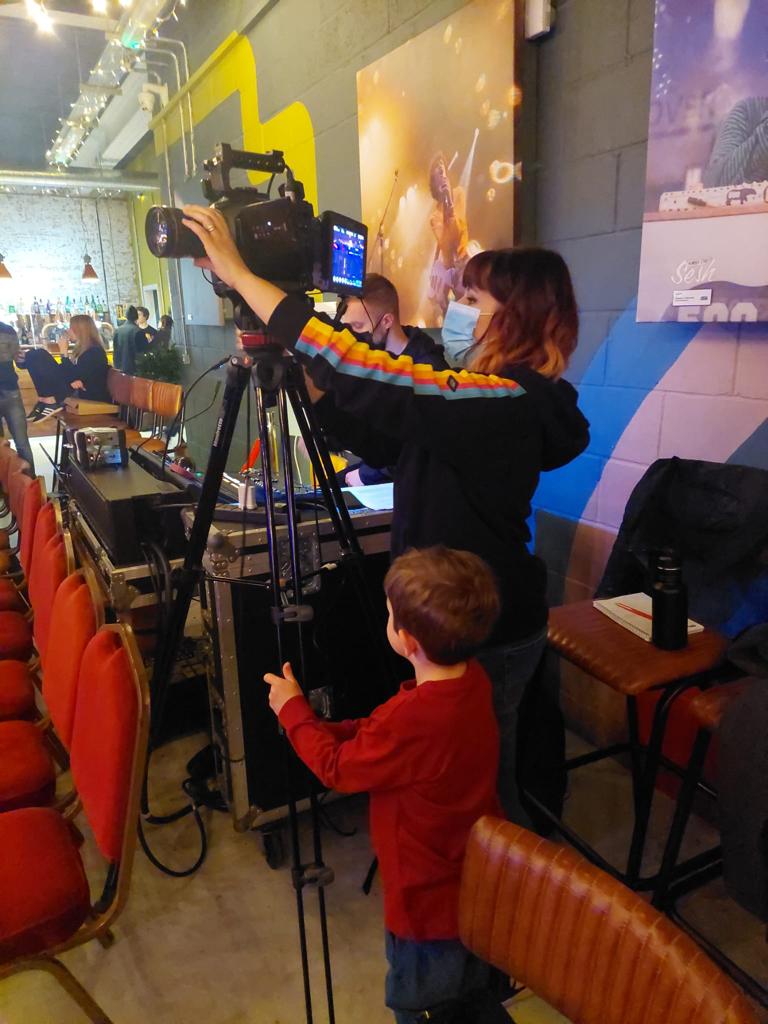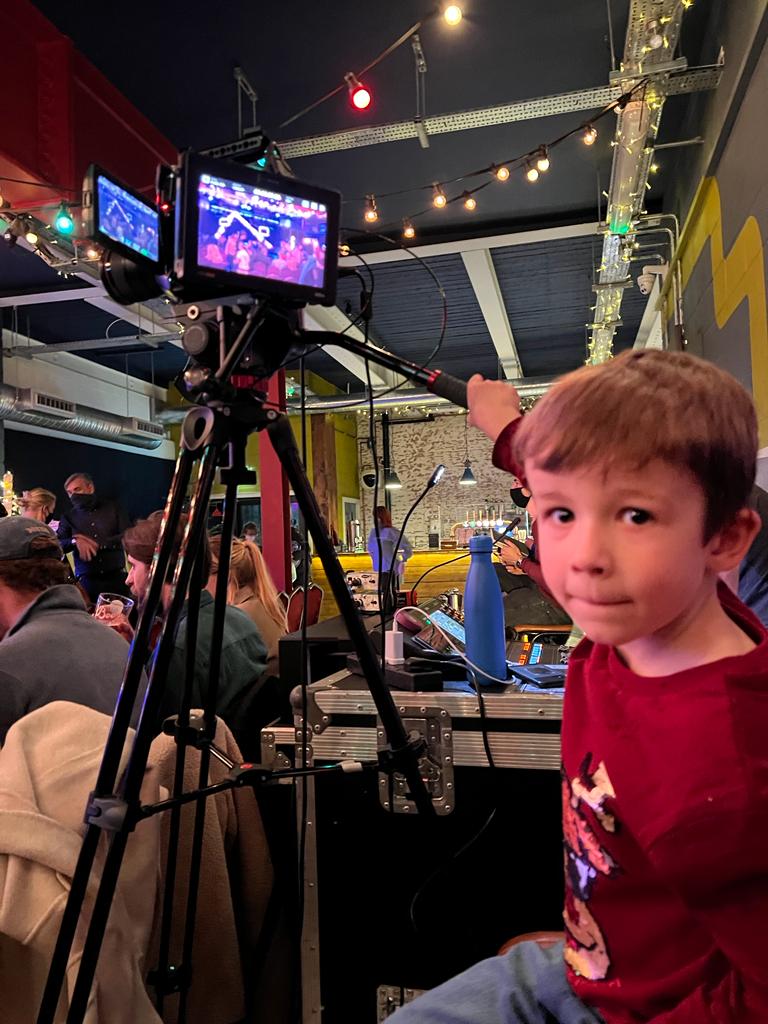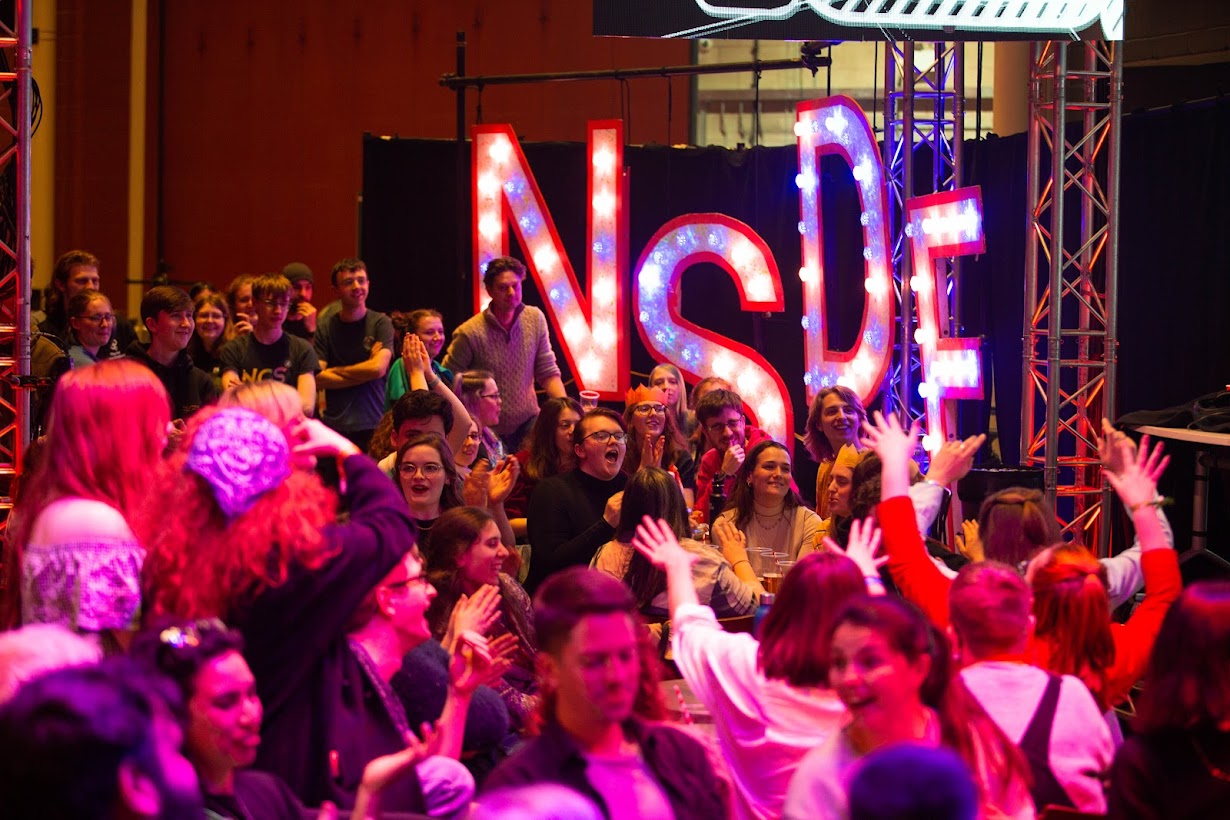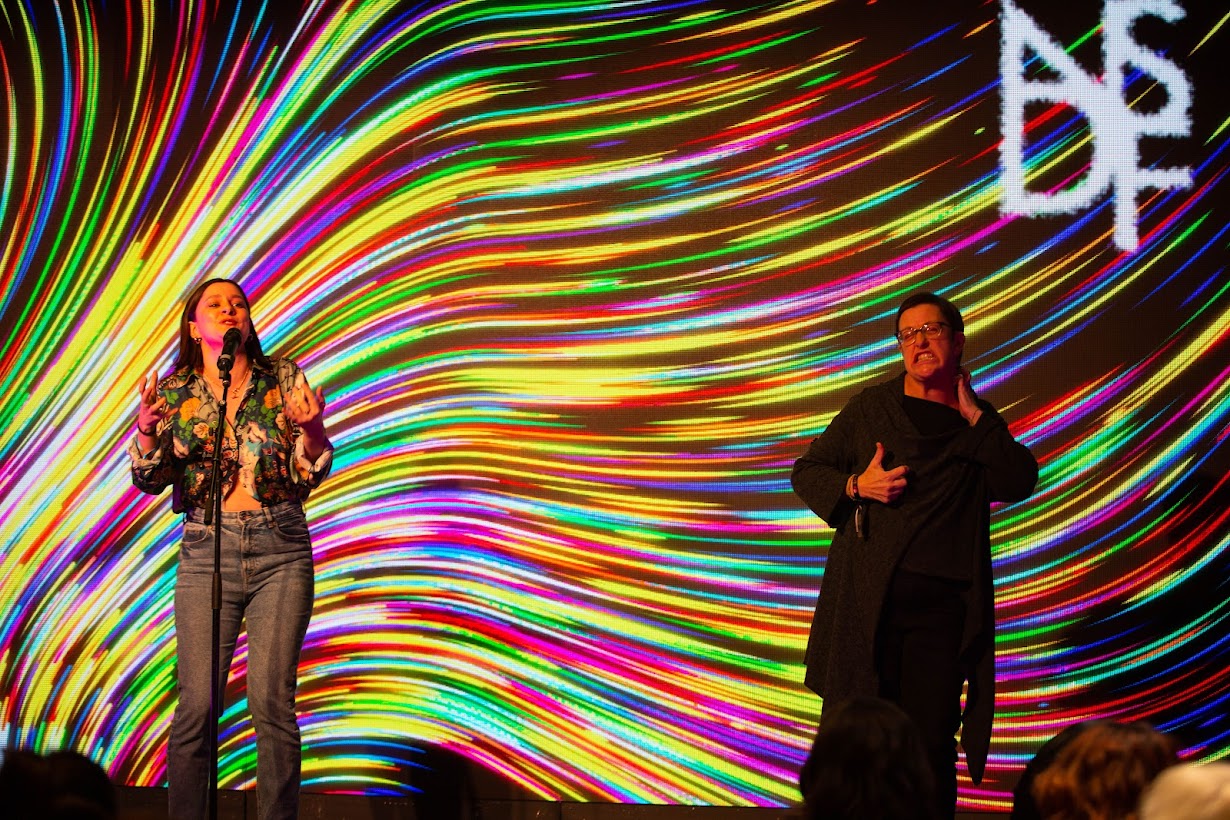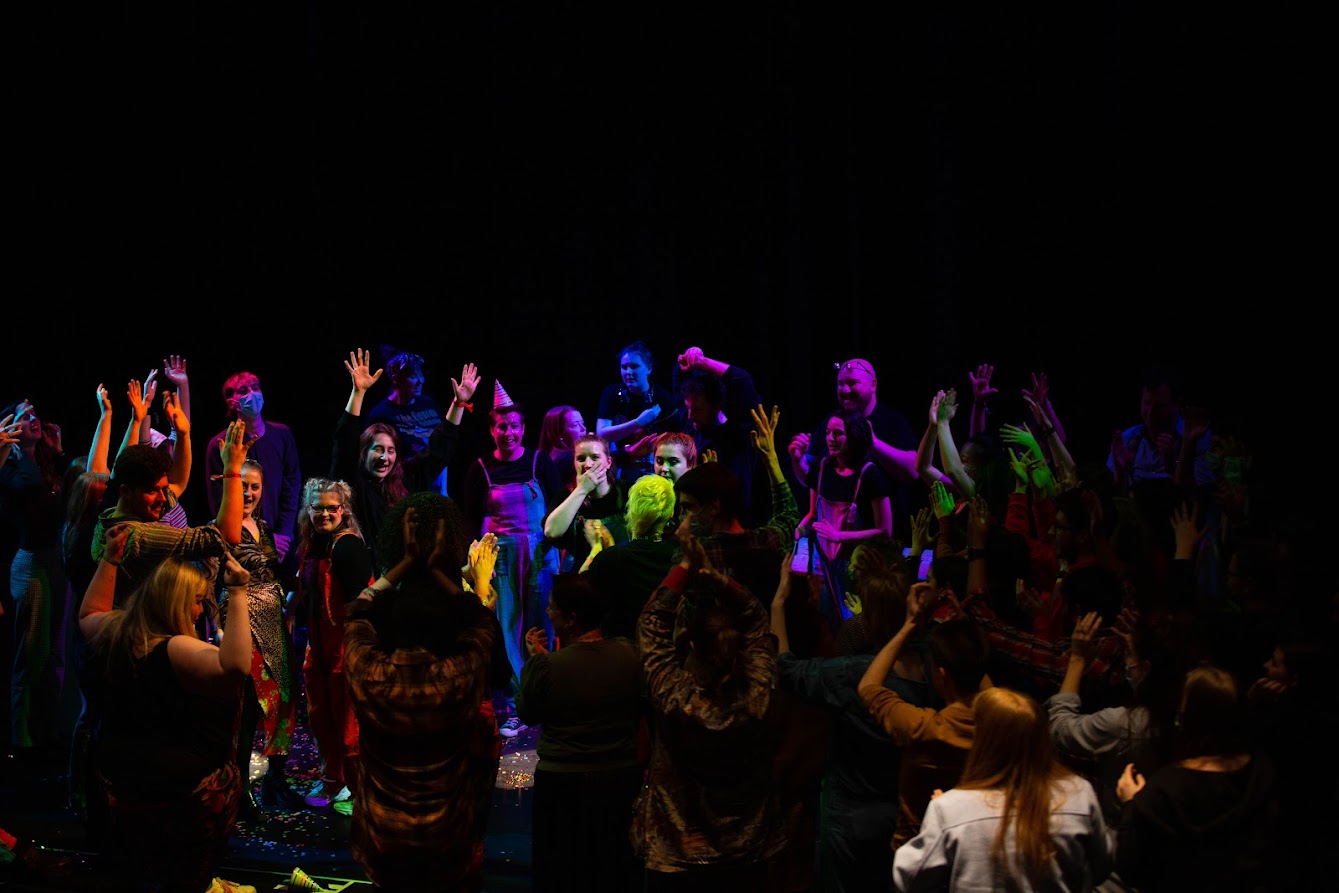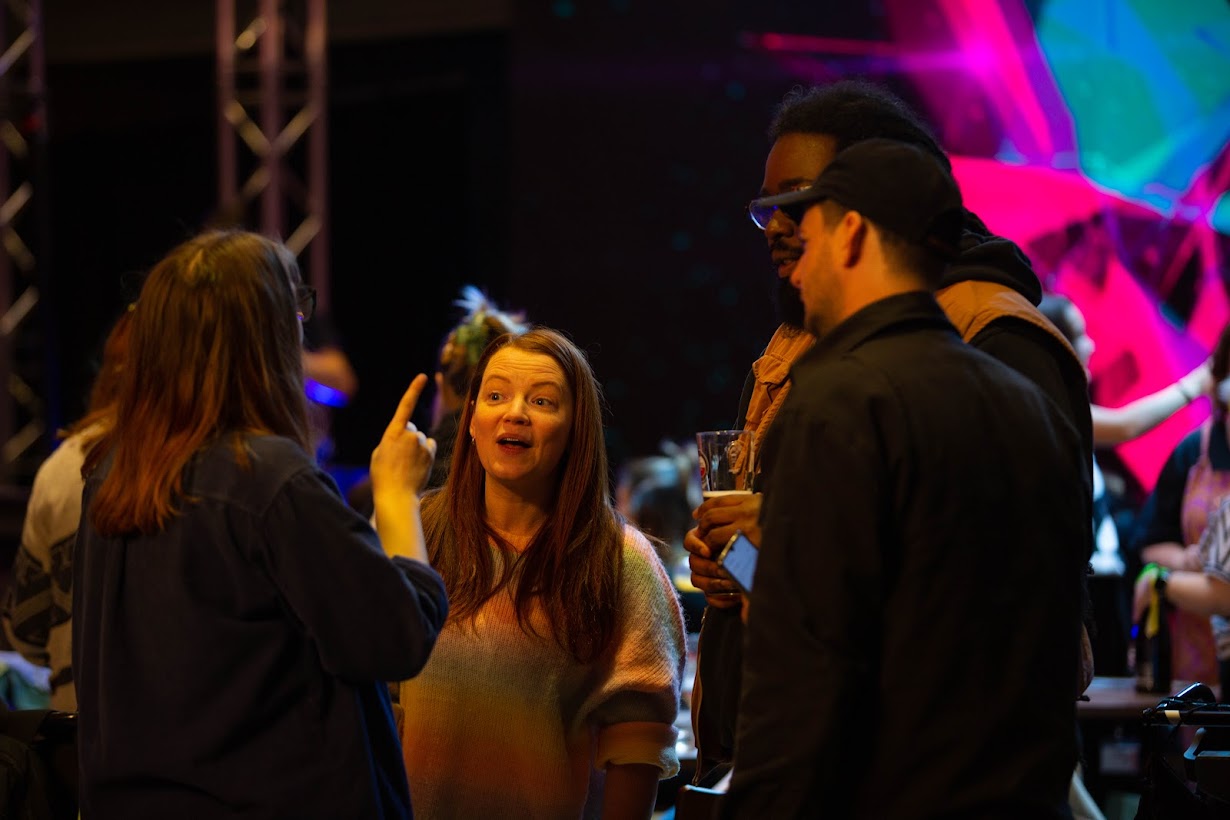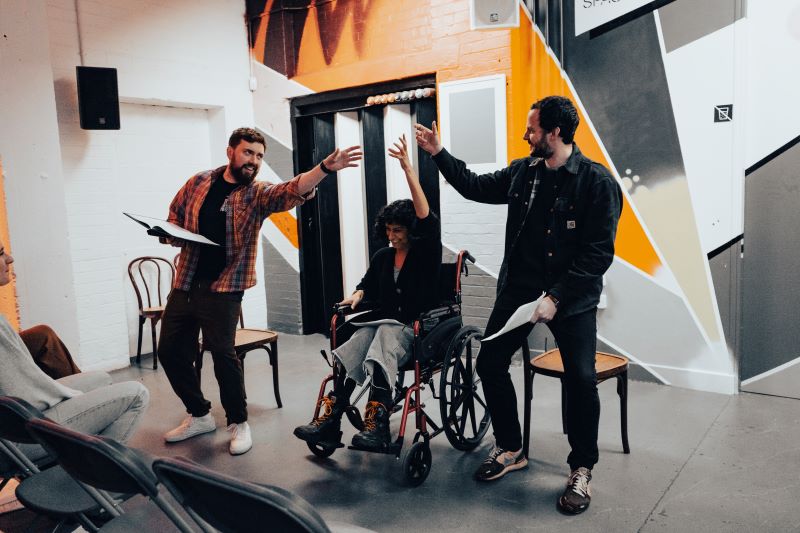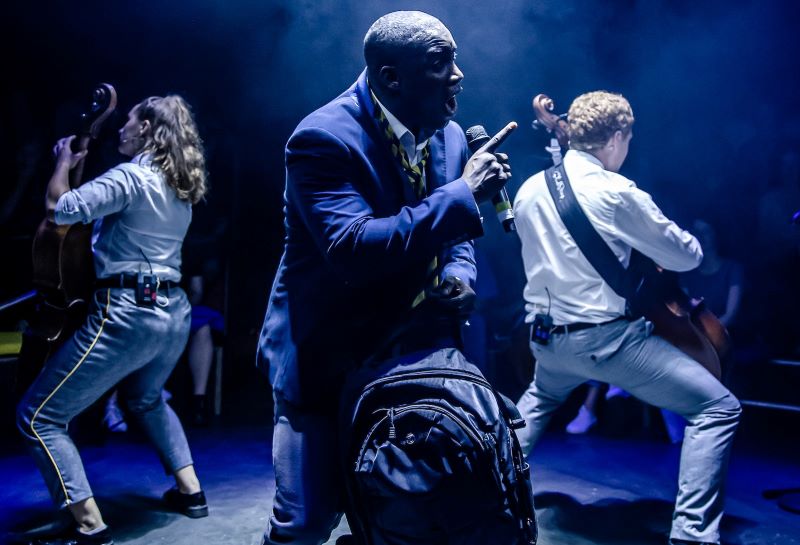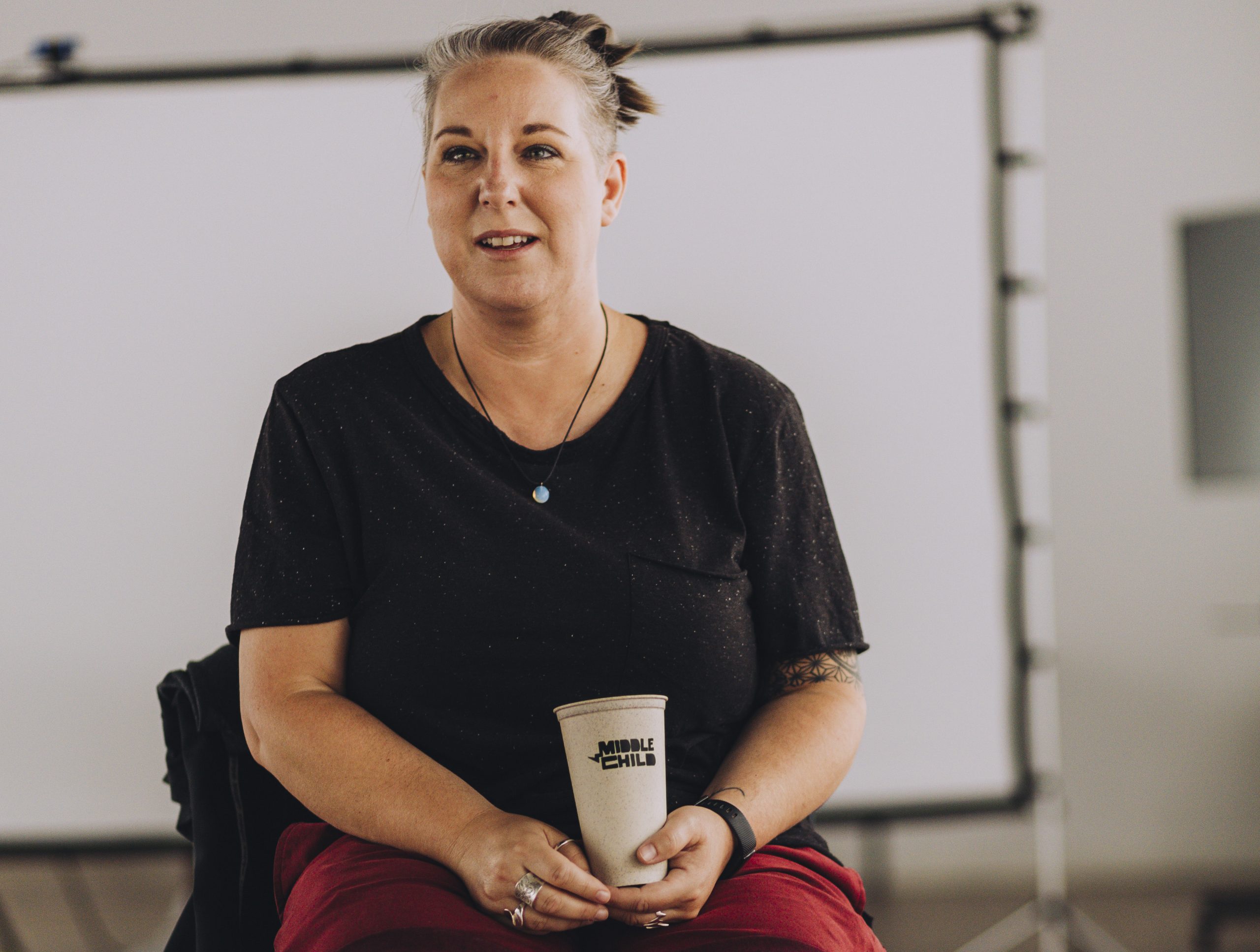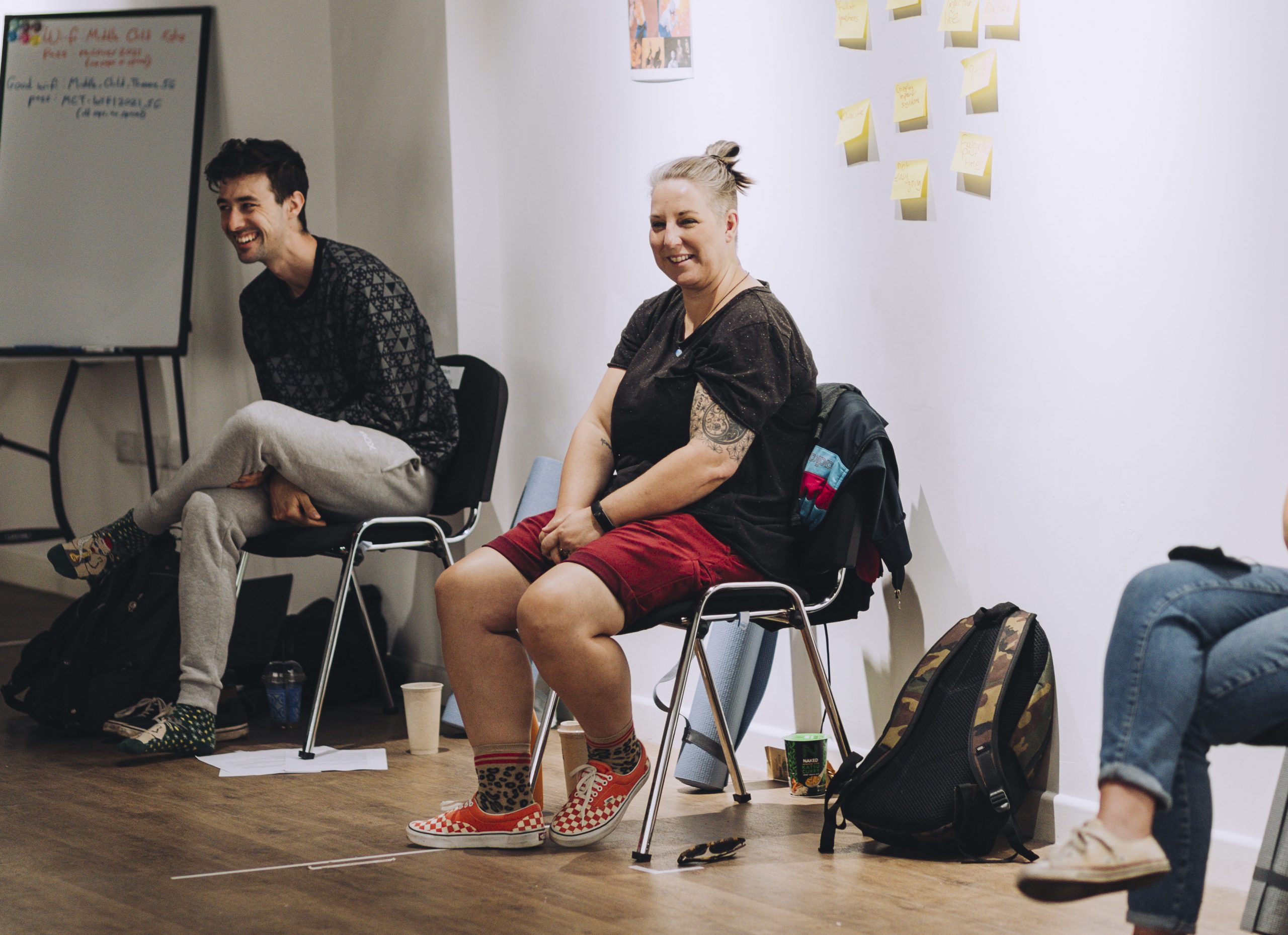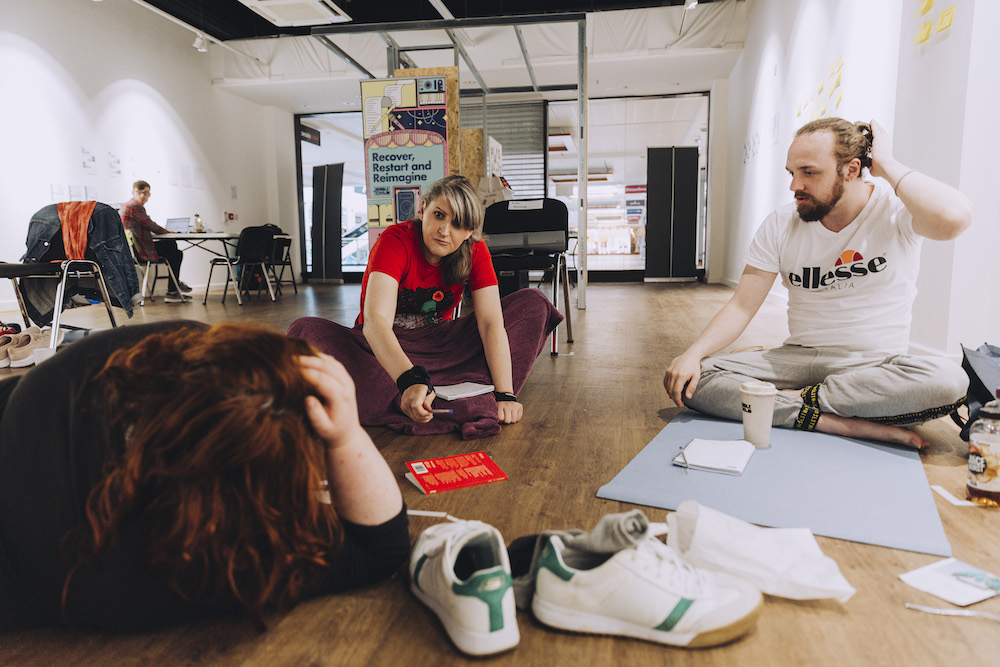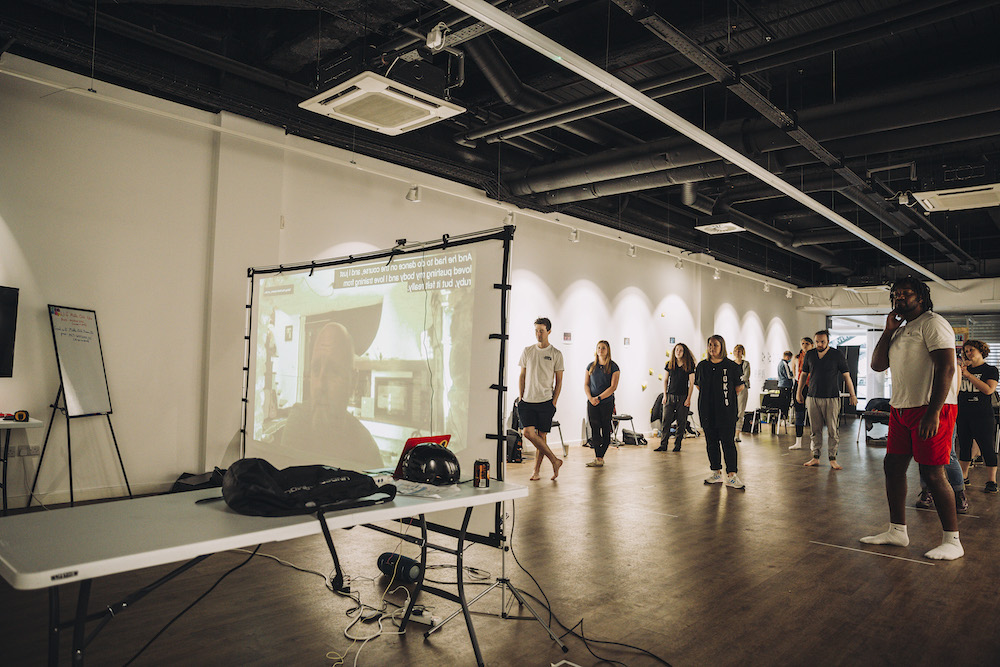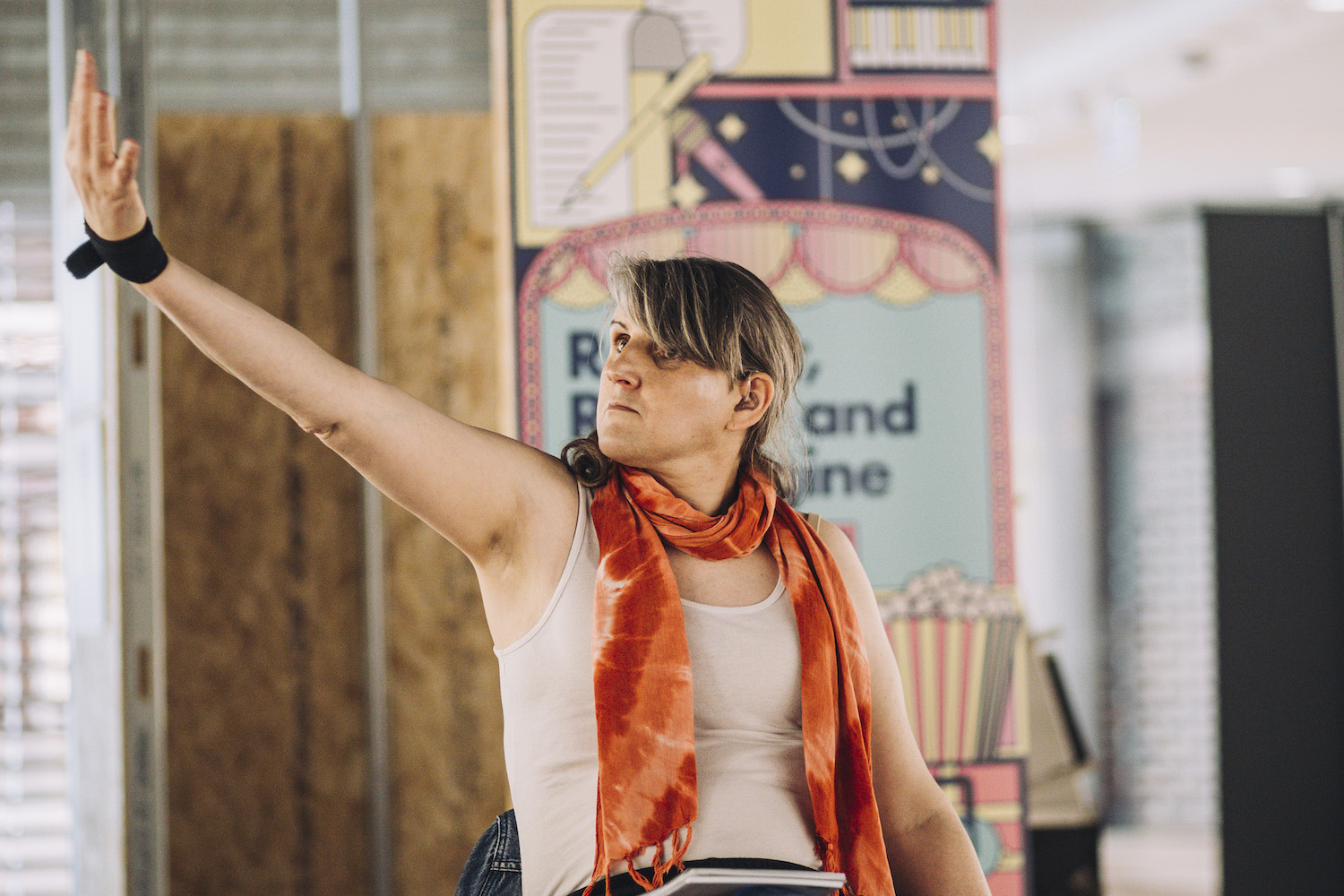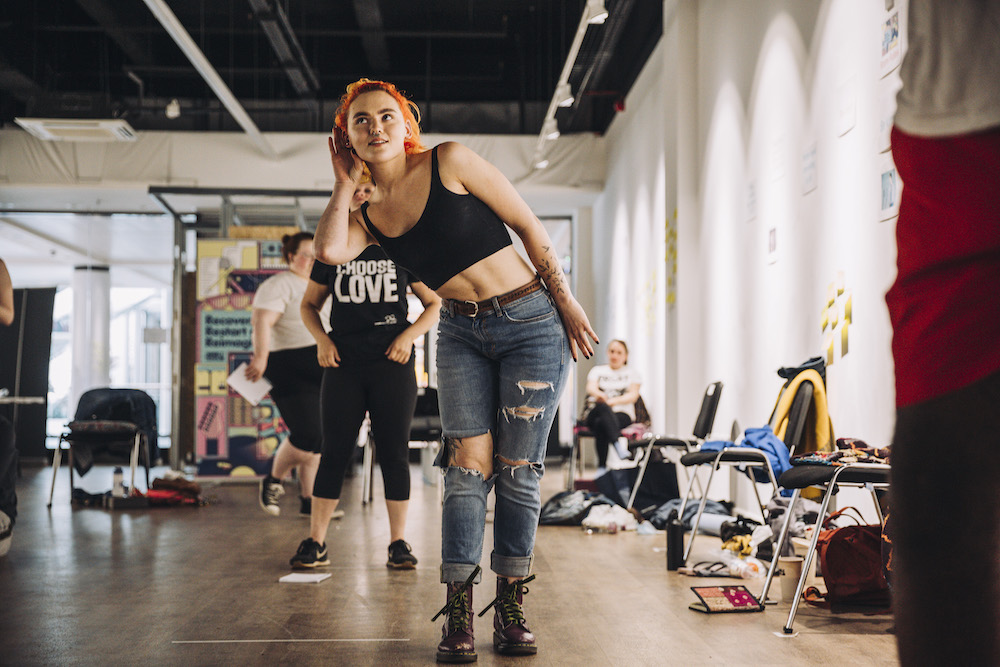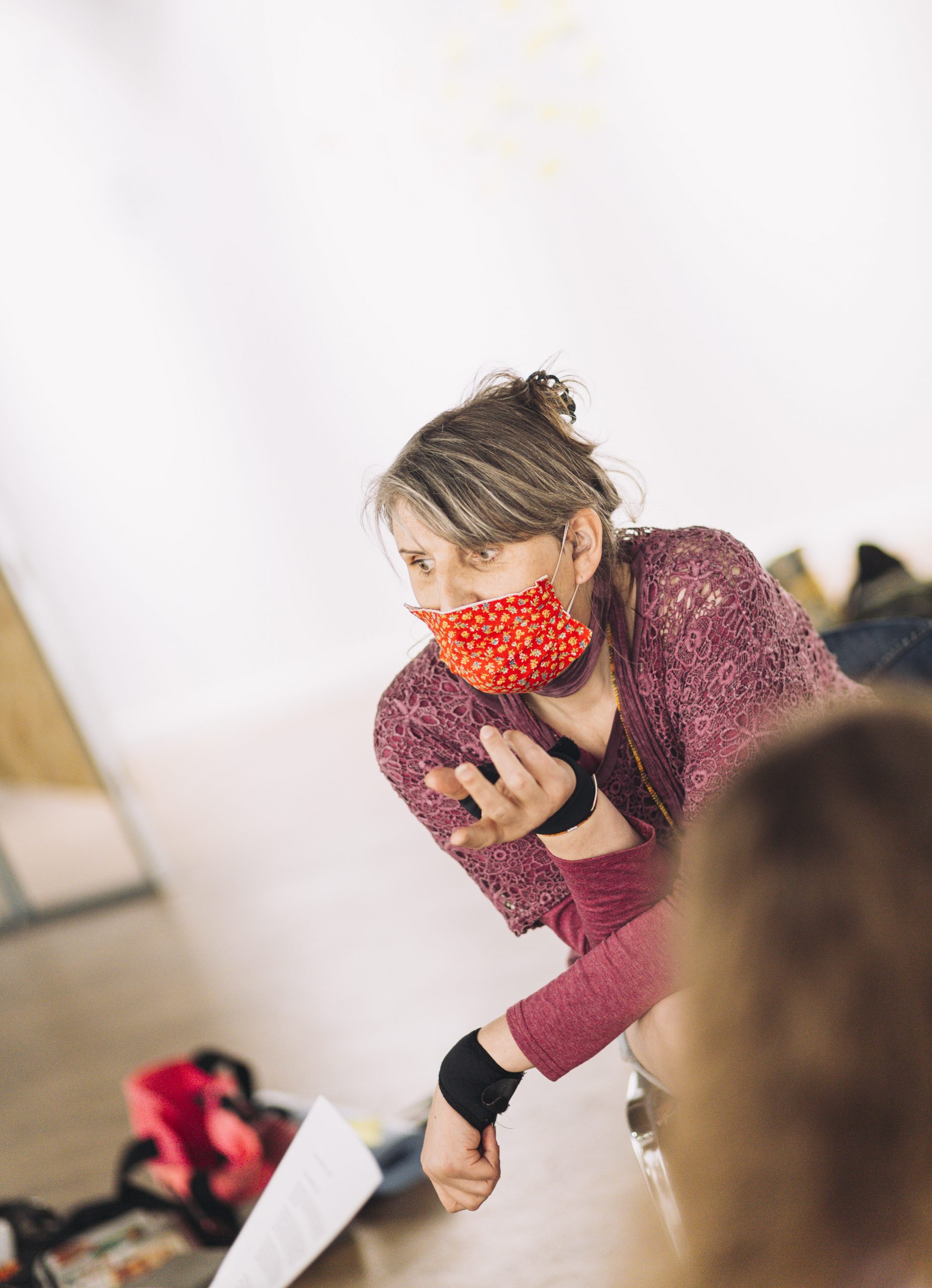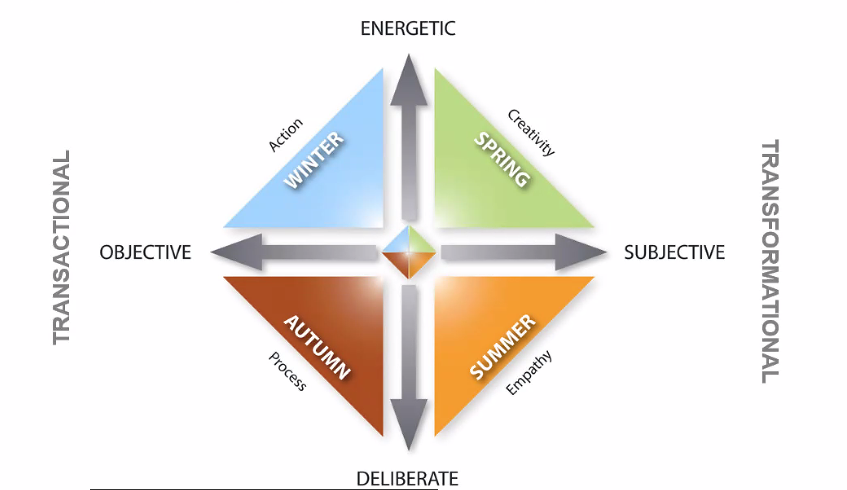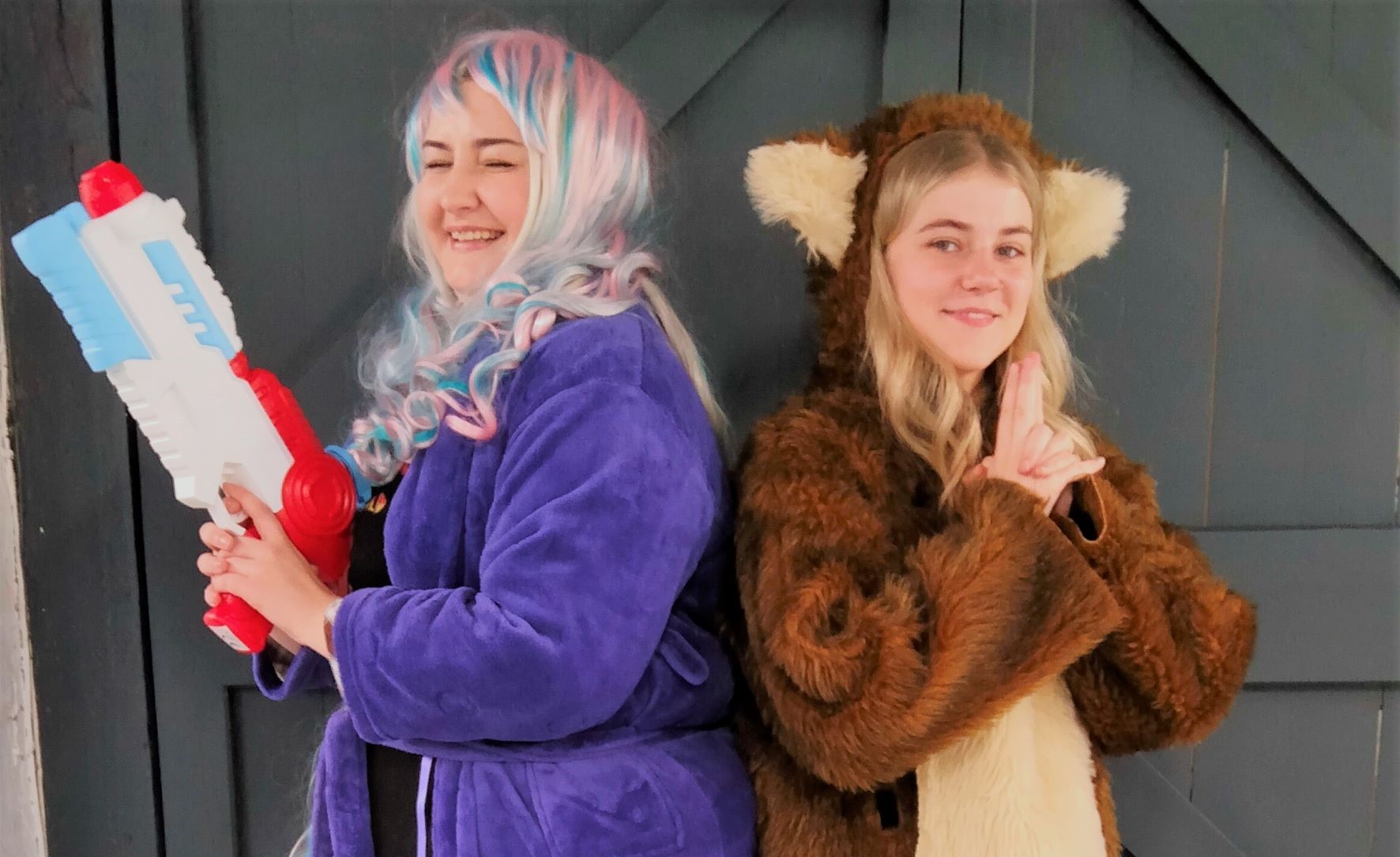
There will be tears in the Middle Child office today as we say farewell to Erin Anderson and Lucy Foy, who have been working with us over the past six months as part of the Kickstart scheme.
During that time, Erin and Lucy have played key roles in the success of our first ever outdoor show, There Should Be Unicorns, as well as the opening of our new home at Bond 31 and preparation for upcoming shows, including this year’s panto.
The energy, enthusiasm, care and attention they’ve brought to Middle Child will be much missed. Read on to see, in their own words, about their experience working in theatre for the first time.
Erin: hit the goodbye playlist!
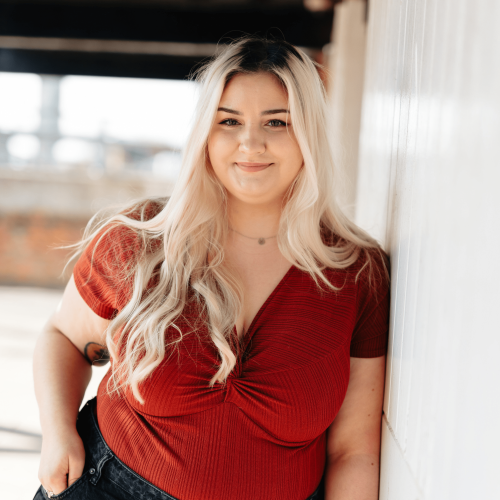
Erin Anderson, digital marketing assistant
Six months ago, I found myself looking for work again as my previous job come to an end. Up until this point my work history had been varied, having never stayed in one field for very long, and a lot of employers didn’t find that too appealing. I began applying for Kickstart roles on the advice of my government-appointed work coach and one of the jobs I applied for was production assistant with Middle Child.
As things started feeling like they weren’t going to look up, I accepted a job offer I had been avoiding in sales and lettings. I was ready to bite the bullet and resign myself to a life I knew I didn’t want. I started that job with a warning not to let the boss know I was vaccinated and to expect to have to work through my unpaid lunches – but what choice did I have? I’m about the furthest thing imaginable from the ‘trust me with your property investments’ type, but this was just what was on the cards for me.
That was until a few days later, when I had an email in my inbox from Jamie, Middle Child’s audience development manager, asking if I would be interested in interviewing for a different position within the company, as digital marketing assistant. I had never done anything close to marketing before, especially anything digital, at which my skills were admittedly rusty and questionable. I didn’t even have a great love of theatre on my side. Still, I knew that I couldn’t pass up this chance.
I accepted an interview at the latest possible date Jamie offered and, to the disappointment of my parents, quit the serious job that was about to get me off abhorrently low Universal Credit to make that interview. It was a risk I had to take, for my own sanity. That week I met Jamie and Hattie Callery, who was then maternity cover for exec director Lindsey, in what was one of the loveliest interviews of my life. I didn’t think I would get the job, but in preparing for this I was reminded that I did have a lot more to offer a role like this than I had first thought.
I pitched my general love for the arts, talked about the transferable skills I could bring to the table and chatted about folk music my way through the door. That afternoon, Jamie called to offer me the job. I would be getting straight to work on There Should Be Unicorns, a show I can probably quote backwards and forwards at this point.
I was instantly welcomed into a fold of amazing people doing amazing things in my city. How had I never realised all of this was on my doorstep? Each day I further explored my capabilities and understood there was a reason I always swam in the deep end of the pool – life was better when I felt like there was something to swim for.
Those first six weeks of marketing, rehearsing and opening a show felt a lot like floundering. This was all completely new to me, but behind me I had Jamie reminding me that Middle Child was a place for people who hadn’t tried things before. I did my best to get stuck in and push my way past the awkward phases of getting to know a company, and a show, and a whole bunch of people who are suddenly in the rehearsal room next door.
I’m now a far-cry from the person that took a risk to interview with Middle Child back in March. The past six months have been a huge professional and personal journey for me, in realising that there are little pockets in the world that I do in fact fit into. I definitely won’t be selling you a house anytime soon. I’ve surprised myself with how capable I am, and I am forever grateful to Middle Child for helping me realise it.
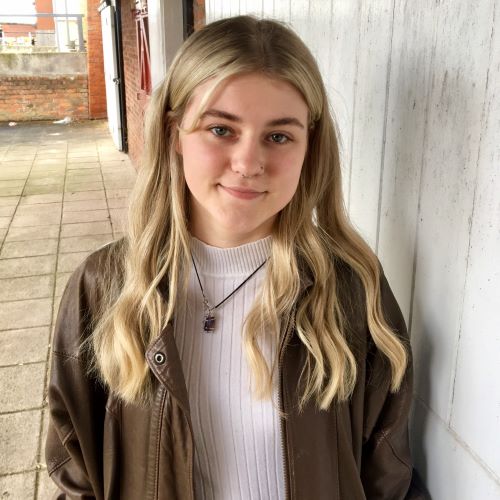
Lucy Foy, production assistant
Six months ago, I was almost completely clueless as to what I wanted to do with my life, both short-term and long-term. I’d dropped out of university (I managed this twice in one year, somehow), flushing my passion for a career in psychology down the drain. I felt the simultaneously lonely, yet very common feeling of being lost and the fear that I would never find a path that excited me, that I genuinely had a passion for pursuing.
All my close friends from school had gone off to university, studying courses they really enjoyed. It seemed everyone around me had it together. However, contrary to my views amidst what I’m making out to be a quarter-life crisis, nobody has it completely together, almost everybody is just making it up as they go along, and that’s okay.
I’ve always had very fond memories of performing and being in theatres as a child: attending youth groups, the adrenaline of putting on a show and the shared sense of community it brought. Around the time I started secondary school, I began experiencing anxiety and panic attacks that caused me to quit the majority of these hobbies I’d loved growing up. Then, shortly before coming across the Middle Child Kickstart job advert, I began considering going back into theatre, from a different angle to performing. Why should I deprive myself of something that brought me so much joy?
I had many of what I now realise are misconceptions about theatre before going into this role. I believed I was ‘too quiet’, ‘too introverted’ and that the type of people who work in theatre would be too overpowering for a personality like mine. I couldn’t have been more wrong. In terms of both work and education, Middle Child is the first place where I haven’t been criticised for being ‘too quiet’. They recognise that everybody’s differences should be celebrated and can be seen as strengths, rather than weaknesses that need to be improved.
If you’re interested in this topic, I really recommend the book ‘Quiet Power’ by Susan Cain and her Ted Talk ‘The Power Of Introverts’. At Middle Child, although everyone has varying levels of experience, they acknowledge that everyone has wisdom and experience to share: everyone you meet, you can learn from.
Although I’ve thoroughly enjoyed being a part of this company and the amazing work they do, it hasn’t been the easiest ride. There have been a fair few tears shed on days I’ve not been feeling on top form, when I’ve felt anxious about certain tasks such as meeting new people, attending meetings, or just for no particular reason at all.
Each time I’ve felt this way, I’ve been met with nothing but kindness, encouragement and empathy. Even in times where I felt a bit hopeless, no member of the team ever gave up on me. After a particularly bad panic attack, artistic director Paul even went as far as to go out of his way to buy me a book, which I highly recommend, called ‘Anxiety: Panicking About Panic’ by Joshua Fletcher. The support I’ve received here has been unmatched.
Thanks to my time at Middle Child, I have now found real enjoyment and a sense of excitement for the theatre industry and have begun studying Drama and Theatre Practice at Hull university.
Skills I’ve developed at Middle Child, both work-related, and personal development-related, have transferred really well to this course and have already come in very useful. I now make conscious decisions to step out of my comfort zone more, bringing me a newfound confidence I would have never imagined I could have before working here. I couldn’t be more grateful to Middle Child for helping me get to the headspace and mindset I have now and will carry with me into this next chapter.
